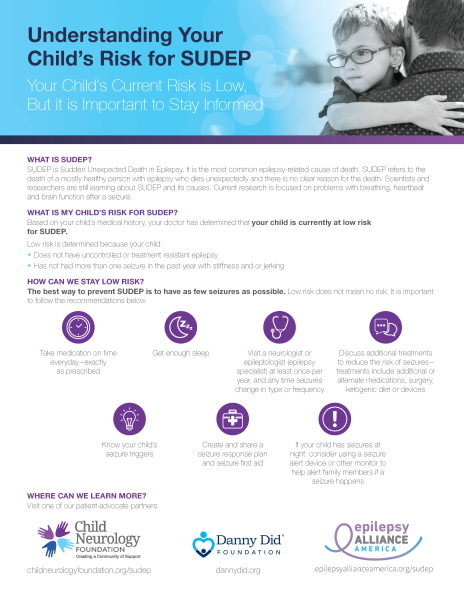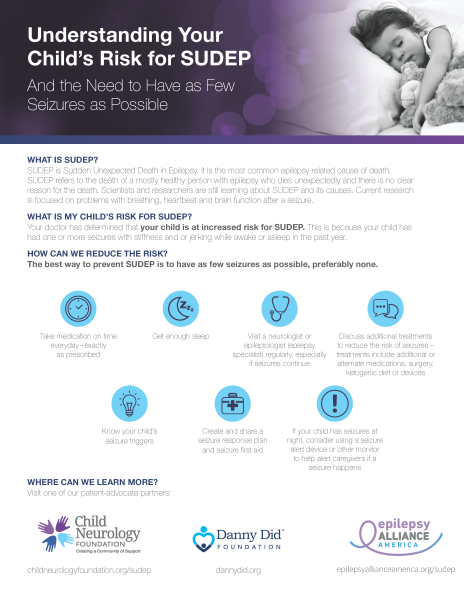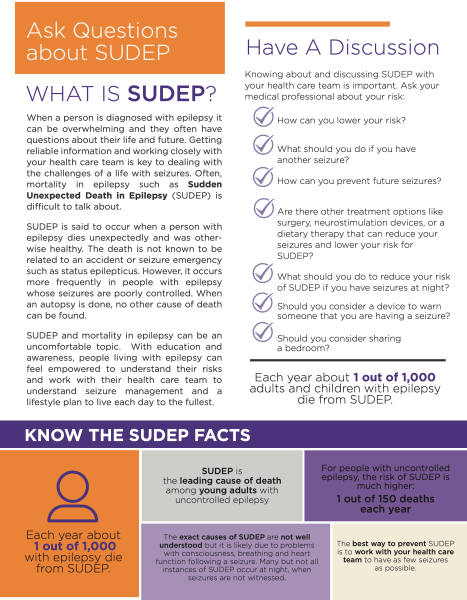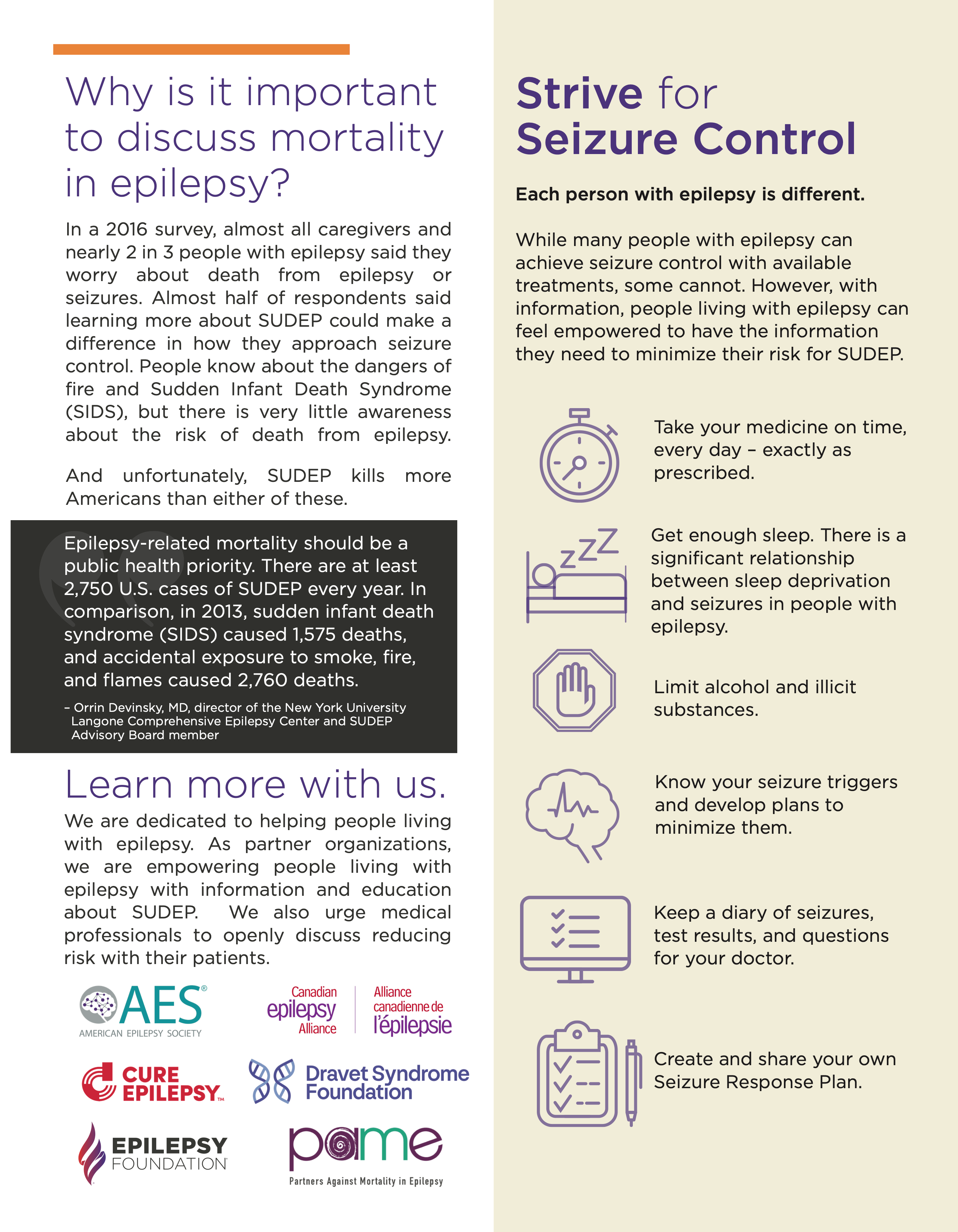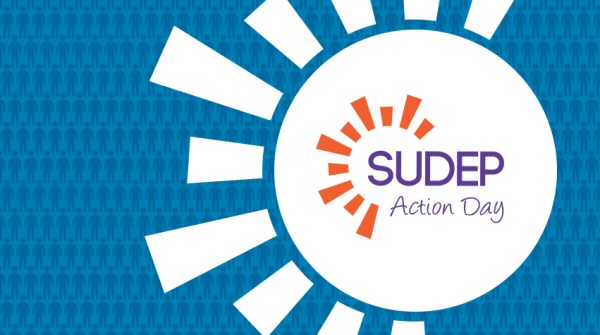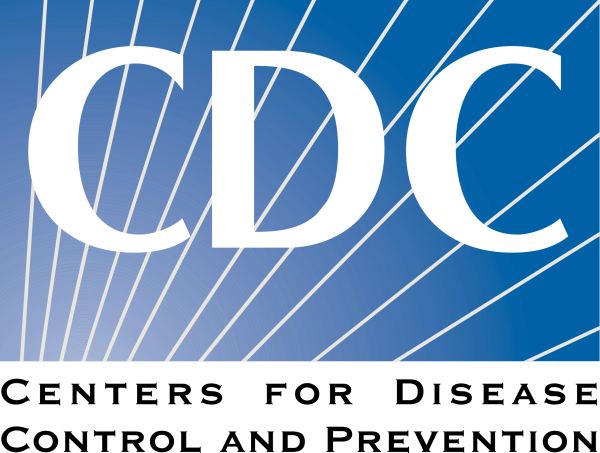When a person is diagnosed with epilepsy it can be overwhelming and they often have questions about their life and future.
Getting reliable information and working closely with your health care team is key to dealing with the challenges of a life with seizures. Often, mortality in epilepsy such as Sudden Unexpected Death in Epilepsy (SUDEP) is difficult to talk about.
SUDEP is said to occur when a person with epilepsy dies unexpectedly and was otherwise healthy.
The death is not known to be related to an accident or seizure emergency such as status epilepticus. However, it occurs more frequently in people with epilepsy whose seizures are poorly controlled. When an autopsy is done, no other cause of death can be found.
SUDEP and mortality in epilepsy can be an uncomfortable topic.
With education and awareness, people living with epilepsy can feel empowered to understand their risks and work with their health care team to understand seizure management and a lifestyle plan to live each day to the fullest.
Each year about 1 out of 1,000 adults and children with epilepsy die from SUDEP.
Why is it important to discuss mortality in epilepsy?
In a 2016 survey, almost all caregivers and nearly 2 in 3 people with epilepsy said they worry about death from epilepsy or seizures. Almost half of the respondents said learning more about SUDEP could make a difference in how they approach seizure control. People know about the dangers of fire and Sudden Infant Death Syndrome (SIDS) but there is very little awareness about the risk of death from epilepsy. And unfortunately, SUDEP kills more Americans than either of these.
It is important to talk to your physician about your risk of SUDEP. Download information here about next steps if your doctor determines your child is at either Low Risk or Increased Risk.
SUDEP: Understanding your Child’s Risk for SUDEP – Your Child’s Current Risk is Low, But it is Important to Stay Informed
SUDEP: Understanding your Child’s Risk for SUDEP – And the Need to Have as Few Seizures as Possible
Questions About SUDEP
Patients: Have A Discussion
Knowing about and discussing SUDEP with your health care team is important. Ask your medical professional about your risk:
- How can you lower your risk?
- What should you do if you have another seizure?
- How can you prevent future seizures?
- Are there other treatment options like surgery, neurostimulation devices, or a dietary therapy that can reduce your
seizures and lower your risk for SUDEP? - What should you do to reduce your risk of SUDEP if you have seizures at night?
- Should you consider a device to warn someone that you are having a seizure?
- Should you consider sharing a bedroom?
Health Care Providers:
We have a toolkit available to educate clinicians on how to talk with families and people living with epilepsy about addressing epilepsy mortality risk factors.

